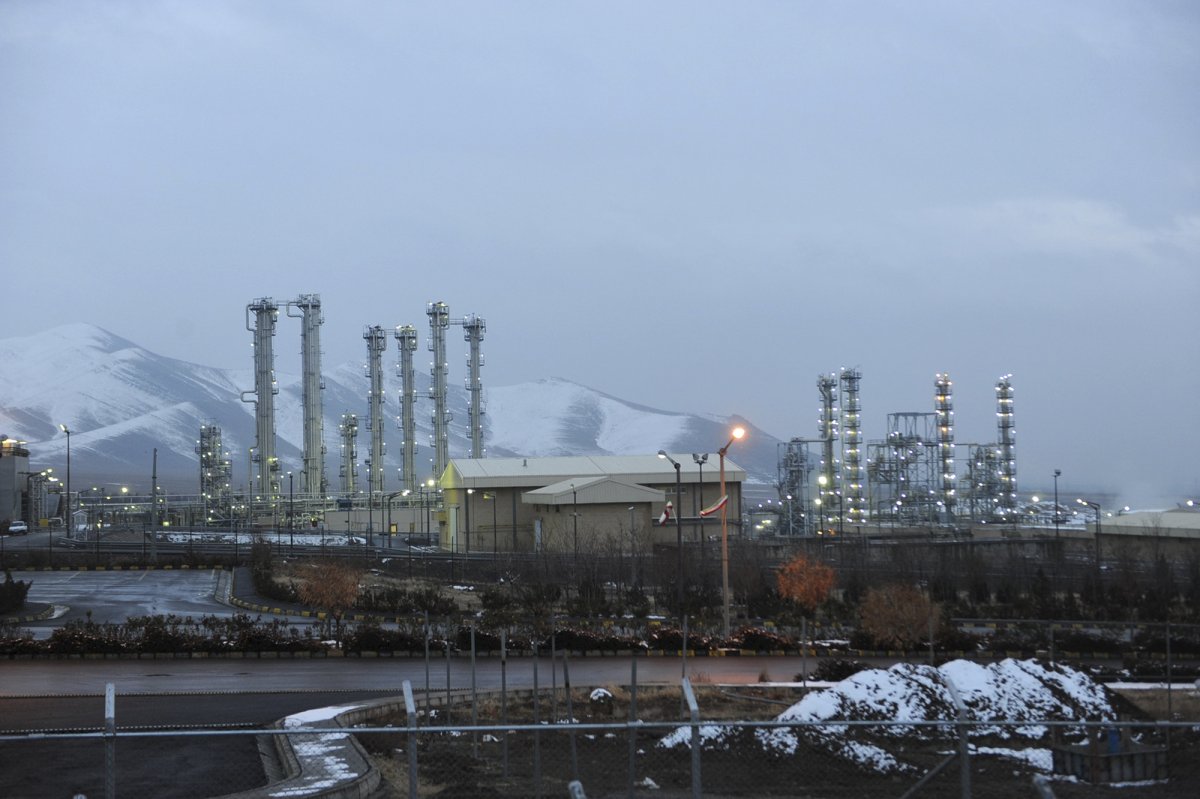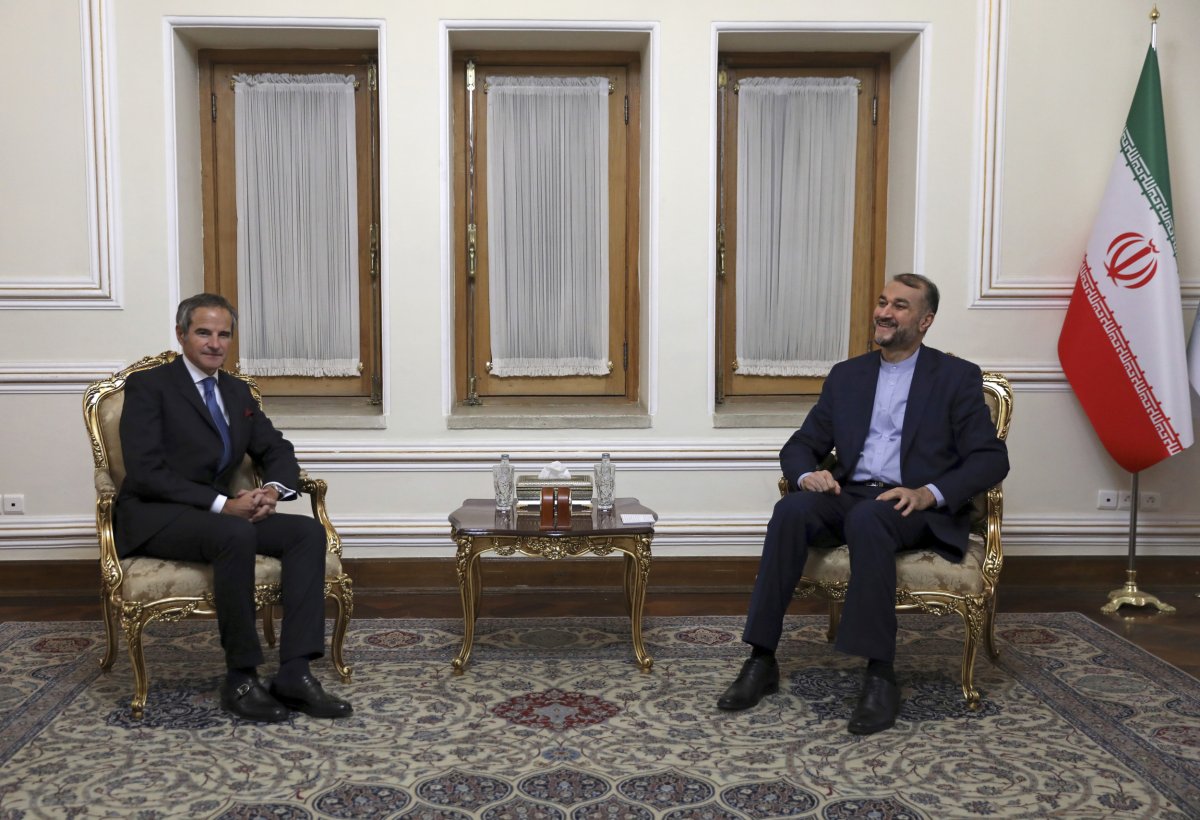The remaining signatories to Iran's 2015 nuclear deal met in Vienna on Monday to discuss reviving the collapsed deal, with Iranian officials saying the United States could have a seat at the table if it lifts sanctions against the country.
The countries still attached to the deal formerly known as the Joint Comprehensive Plan of Action are Iran, China, Britain, Russia, France and Germany. The Associated Press reported that representatives from those countries met at the Palais Coburg, the same hotel where the agreement was signed six years earlier.
The original deal had Iran limit its uranium enrichment in exchange for the other countries lifting economic sanctions. The talks are aimed at bringing Iran back in compliance with the deal.
The U.S. remains out of the talks due to the Trump administration's decision to leave the deal. President Joe Biden has indicated that he would like to rejoin.
A delegation appointed by new Iranian President Ebrahim Raisi has made what AP called "maximalist demands" in the negotiations, including asking the U.S. to unfreeze $10 billion in assets as a goodwill gesture.
Iranian Foreign Ministry spokesman Saeed Khatibzadeh told AP that the U.S. could "receive a ticket for returning to the room" if it agreed to "the real lifting of sanctions."
Currently, a U.S. delegation led by special envoy for Iran Robert Malley is indirectly participating in the talks, joining diplomats from other countries acting as go-betweens.
For more reporting from the Associated Press, see below.

The talks came as Austria is a week into a lockdown imposed because of a surge of coronavirus cases. Iran's state-run media aired images from inside the talks as journalists remained outside of the hotel.
Since the deal's collapse, Iran now enriches small amounts of uranium up to 60 percent purity—a short step from weapons-grade levels of 90 percent. Iran also spins advanced centrifuges barred by the accord and its uranium stockpile now far exceeds the accord's limits.
Iran maintains its atomic program is peaceful. However, U.S. intelligence agencies and international inspectors say Iran had an organized nuclear weapons program up until 2003. Nonproliferation experts fear the brinkmanship could push Tehran toward even more extreme measures to try to force the West to lift sanctions.
Making matters more difficult, United Nations nuclear inspectors remain unable to fully monitor Iran's program after Tehran limited their access. A trip to Iran last week by the head of the International Atomic Energy Agency, Rafael Grossi, failed to make any progress on that issue.
Russia's top representative, Mikhail Ulyanov, said he held "useful" informal consultations with officials from Iran and China on Sunday. That meeting, he said, was aimed at "better understanding...the updated negotiating position of Tehran." He tweeted a picture of a meeting Monday he described as a preparatory session with members before Iran joined the discussions.
Enrique Mora, the European Union official chairing the talks, also wrote on Twitter of "intense preparatory work ongoing."
Ali Bagheri, an Iranian nuclear negotiator, told Iranian state television late Sunday that the Islamic Republic "has entered the talks with serious willpower and strong preparation." However, he cautioned that "we cannot anticipate a timeframe on the length of these talks now."
Israeli Prime Minister Naftali Bennett, in a video address delivered to nations negotiating in Vienna, warned that he saw Iran trying to "end sanctions in exchange for almost nothing."
"Iran deserves no rewards, no bargain deals and no sanctions relief in return for their brutality," Bennett said in the video that he later posted to Twitter. "I call upon our allies around the world: Do not give in to Iran's nuclear blackmail."
British Foreign Secretary Liz Truss called the meeting "the last opportunity for the Iranians to come to the table" after a meeting with Israeli Foreign Minister Yair Lapid.
"We want those talks to work," Truss said. "But if they don't work, all options are on the table."
In an interview with NPR broadcast Friday, U.S. negotiator Malley said signs from Iran "are not particularly encouraging."
Russia's Ulyanov said there's pressure to get the process moving after "a very protracted pause."
"The talks can't last forever," he tweeted on Sunday. "There is the obvious need to speed up the process."

Uncommon Knowledge
Newsweek is committed to challenging conventional wisdom and finding connections in the search for common ground.
Newsweek is committed to challenging conventional wisdom and finding connections in the search for common ground.
About the writer
To read how Newsweek uses AI as a newsroom tool, Click here.








